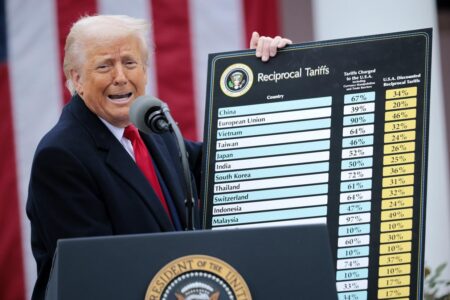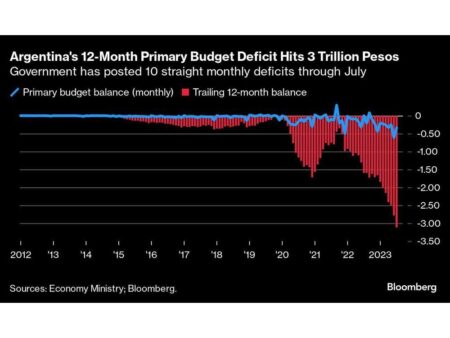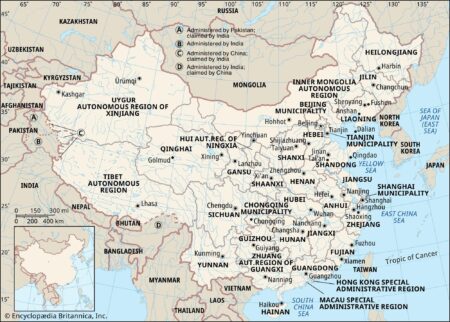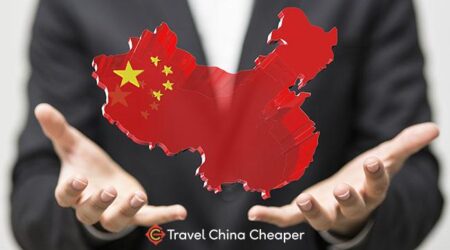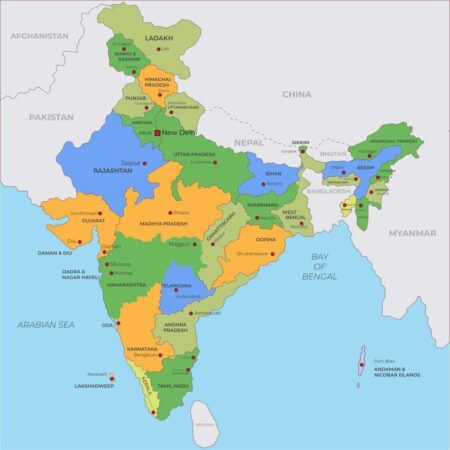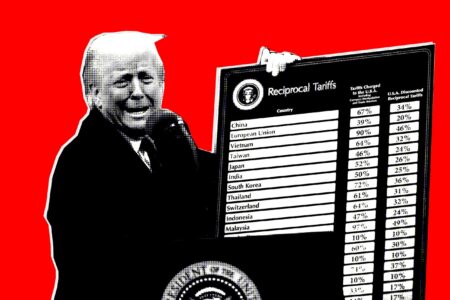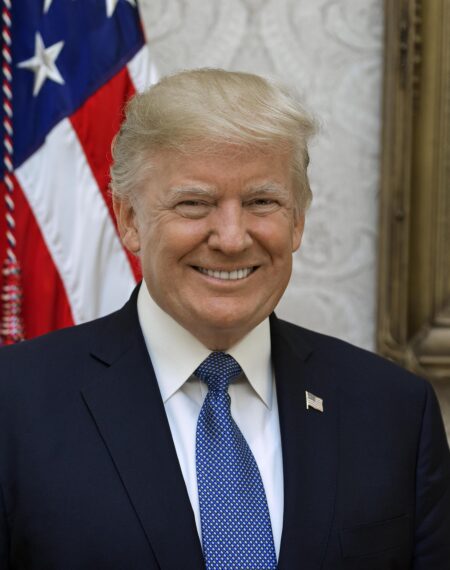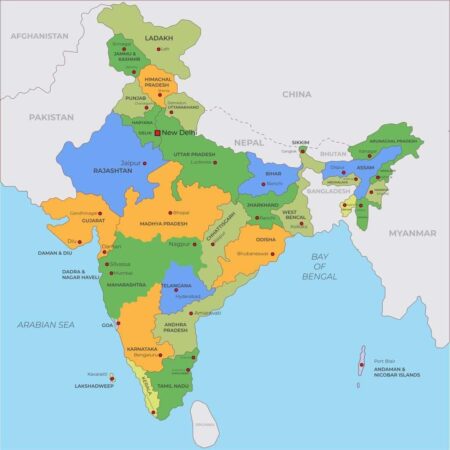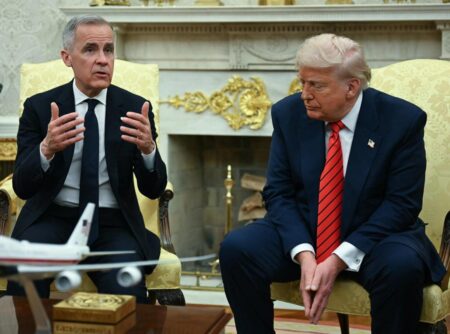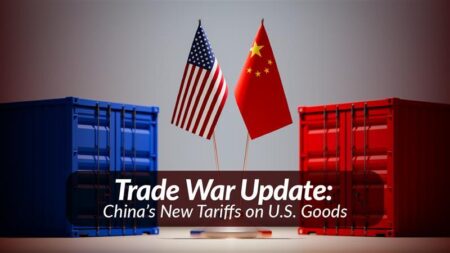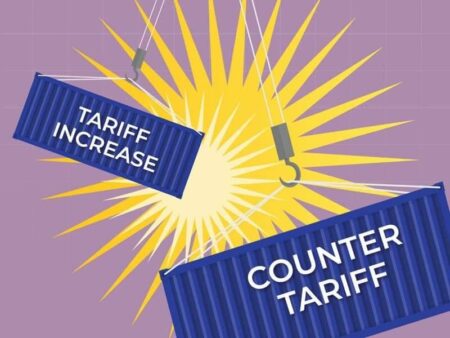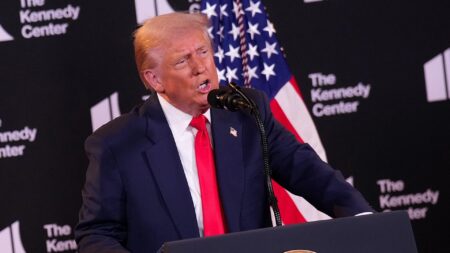Trump’s tariffs on Canadian goods have catapulted Mark Carney into the spotlight, challenging his ability to navigate escalating economic tensions and maintain stability amid intensifying trade disputes
Browsing: economic policy
Argentina’s draft 2026 budget boldly champions fiscal balance while significantly ramping up social spending, highlighting the government’s commitment to economic stability and enhancing social support amid these challenging financial times
Argentina’s President Milei faced a significant blow as the Senate approved a surge in government spending, directly opposing his drive for fiscal austerity. This move highlights the intensifying battle over economic policy unfolding in Congress
China has issued a strong warning to Mexico regarding its proposed tariff measures, accusing the country of yielding to U.S. pressure. This intensifying dispute highlights rising tensions amid ongoing trade negotiations, Bloomberg reports
Businesses aiming for success in China must prepare for mounting deflation risks, experts warn. As demand wanes and prices continue to fall, profit margins and investment strategies could come under serious pressure-underscoring the importance of a well-crafted approach to thrive in the world’s second-largest economy
India has called on BRICS nations to confront trade deficits boldly, as the bloc unites in opposition to U.S. tariffs. This decisive move underscores growing economic cooperation amid rising global trade tensions, CNBC reports
Japan’s Prime Minister Shigeru Ishiba has just announced his resignation, following a historic breakthrough in securing a landmark U.S. tariff agreement. This bold move marks a dramatic shift in Japan’s economic leadership, NBC News reports
In his latest column for The Logic, Carney boldly announces that Canada’s era of cautious, boy scout politics has ended, paving the way for a new chapter of daring economic and strategic initiatives under Carmichael’s leadership
Japan enthusiastically embraces President Trump’s directive to cut tariffs on automobiles and other goods, igniting hope for stronger trade relations and exciting economic benefits for both nations, ABC News reports
Trump intensifies his attacks on India amid soaring tariff tensions, while analyst Bessent forecasts the Supreme Court will uphold the tariffs. Stay tuned for live updates on this heated trade showdown!
Trump’s tariff surge sends shockwaves through Brazil, rattling its economy and stirring environmental alarms. As trade barriers climb, Brazilian exports face mounting pressure, while ecological challenges deepen amid rapidly changing market forces
Former President Donald Trump blasted the India-U.S. trade relationship as “a totally one sided disaster” following Indian Prime Minister Modi’s visit to China, highlighting ongoing tensions over trade imbalances, CNBC reports
Brazil’s groundbreaking social programs and bold advances in renewable energy offer powerful lessons for tackling America’s toughest policy challenges. As both countries confront inequality and climate change, Brazil’s journey delivers fresh, timely insights that can inspire meaningful change
India’s Prime Minister Narendra Modi is set for a historic encounter with China’s Xi Jinping and Russia’s Vladimir Putin during his first visit to China in seven years, as rising US tariffs continue to transform the global trade landscape
A confidential letter from Chinese President Xi Jinping became a crucial turning point in healing India-China relations following the strain caused by the Trump administration’s tariff surge, Bloomberg reports. This discreet diplomatic move reopened channels and helped ease economic tensions between the two nations
Canada’s counter-tariffs have rocked the very core of CUSMA, a U.S. envoy declared, accusing Ottawa of pulling the rug out from under the trade deal and stoking escalating tensions between the two countries
Economists are sounding the alarm, urging tougher regulations on Italy’s first pillar pension funds to safeguard financial stability and protect pensioners’ futures. These urgent calls highlight rising concerns over fund management practices and a troubling lack of transparency
Trump’s China tariffs have struck a devastating blow to two major US retailers, pushing them perilously close to bankruptcy. Skyrocketing costs and disrupted supply chains have created intense challenges, highlighting the severe economic fallout from these trade policies
The steel union warns that removing counter-tariffs at this moment would be a risky gamble, especially amid rising fears that President Trump is weakening CUSMA. They stress that these protective measures are crucial to safeguarding the North American steel industry
The U.S. has announced a draft notice proposing a steep 50% tariff on select Indian products, set to take effect on August 27. This bold step escalates trade tensions between the two nations, sending shockwaves through key industries

